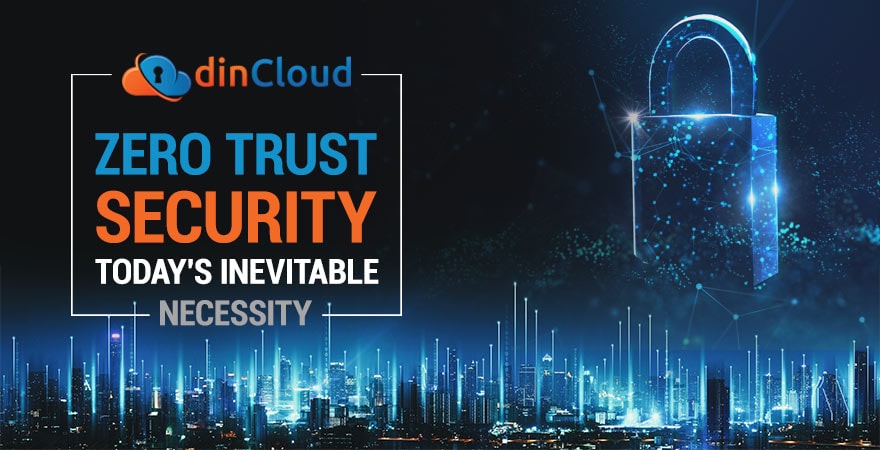The most prized possession of any thriving business is its intellectual property, customer data, financial information or employee data etc. Organizations constantly strive to keep these digital assets secure from internal vulnerabilities and external threats.

However, given the broad spectrum of cyber threats out there, keeping these assets secure is becoming a daunting task with every passing day. Still, cyber security experts and analysts are doing a great job at staying ahead of the threats out there.
Related: Zero Trust Security – An Effective Risk Mitigation Model
Zero Trust Security – An Inevitable Need of Today
To achieve top notch security in the present hostile cyber environment, a Zero Trust Security Model is your best bet, at least on paper. This model is based on the very presumption that there is no such thing as un-checked or supra privileged access.
After analysis of many notable incidents of cyber breaches or data thefts, it was found that the perpetrators were able to gain incremental access to network resources. This happened because once inside, they were able to make further headways into the network.
Related: Why Zero Trust Security Strategy is Future for Businesses
Implementation Stats about Zero Trust
Despite the fact that a vast majority of enterprises do realize that Zero Trust Security is the way forward, things have not been moving equally quick on the implementation front. The stats regarding Zero Trust implementation lend weight to this perception.
According to Cybersecurity Insiders, only 15% of the surveyed enterprises were actually able to implement Zero Trust Security Policy across the organization by the year 2019. Another 50% had this on their agenda for the year 2020.
However, the year 2020 remained overshadowed by the devastating impact of the Covid-19 pandemic on global businesses. During whole of the last year, most businesses were busy resurrecting work from home or remote work policies.
Related: Study Reveals a Positive Correlation b/w Zero Trust Security and Employee Experience
Remote Work – A New Threat Vector
One more development that further underscores the importance of Zero Trust Security is extensive and prolonged remote work scenarios after the pandemic. The present scenario has otherwise placed mission critical data outside the confines of secure networks.
Under these circumstances, gaps in remote work scenarios are being exploited by cyber miscreants to gain preliminary access to the secure corporate network. Once inside, they can move laterally across the network to inflict much more severe damage.
Related: How to Navigate the Journey Towards Zero Trust Security?
How Does Zero Trust Security Differ from Others?
One of the best aspects of the Zero Trust model is that it is based on the assumption that un-trusted users can exist on both sides of the perimeter, i.e. within the corporate network and outside as well. So, the possibility of unquestioned trust does not arise at all.
Every time a user attempts to gain access to network resources, data or applications, the user needs to be authenticated prior to grant of access. The other vital aspect of zero trust is the least privilege approach that needs to be followed in true spirit.
This approach emphasizes that access to network resources, data or applications should strictly be limited only to the scope of the task at hand. With this approach, even if there is a network breach, the impact of the damage will be much lesser and contained.
Lastly, the Zero Trust Security emphasizes the need to constantly and closely monitor user activities and requests. This is a great way of identifying un-usual patterns or anomalies, so that red flags can be raised before something big happens.
Related: How Top-Notch Medical Center Deployed Virtualization?
Conclusion
The Zero Trust Security Model is becoming an in-evitable need, given the present cyber security landscape. However, organizations will have to take practical steps to move towards this model.
Contact dinCloud for secure, robust and reliable cloud solutions for your enterprise.


